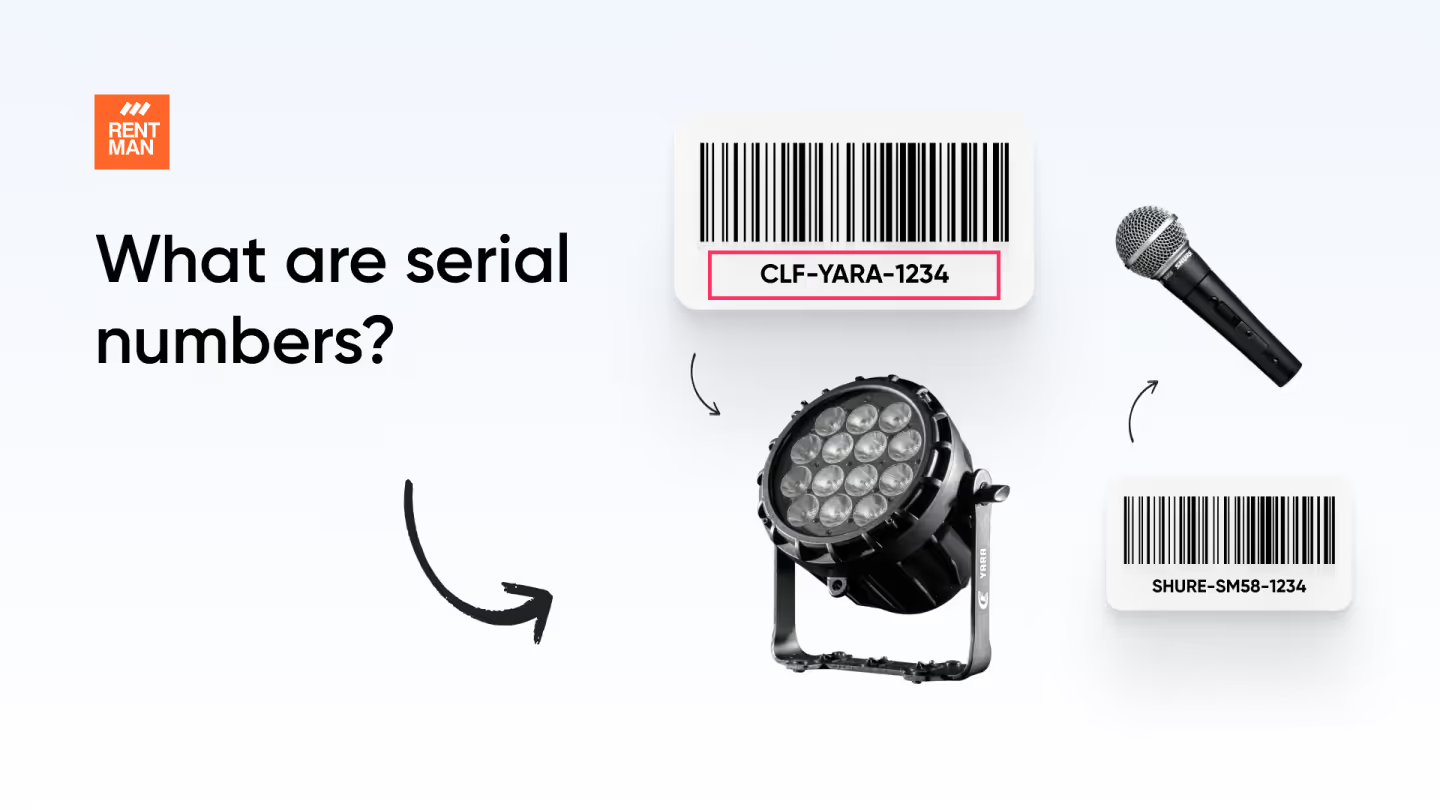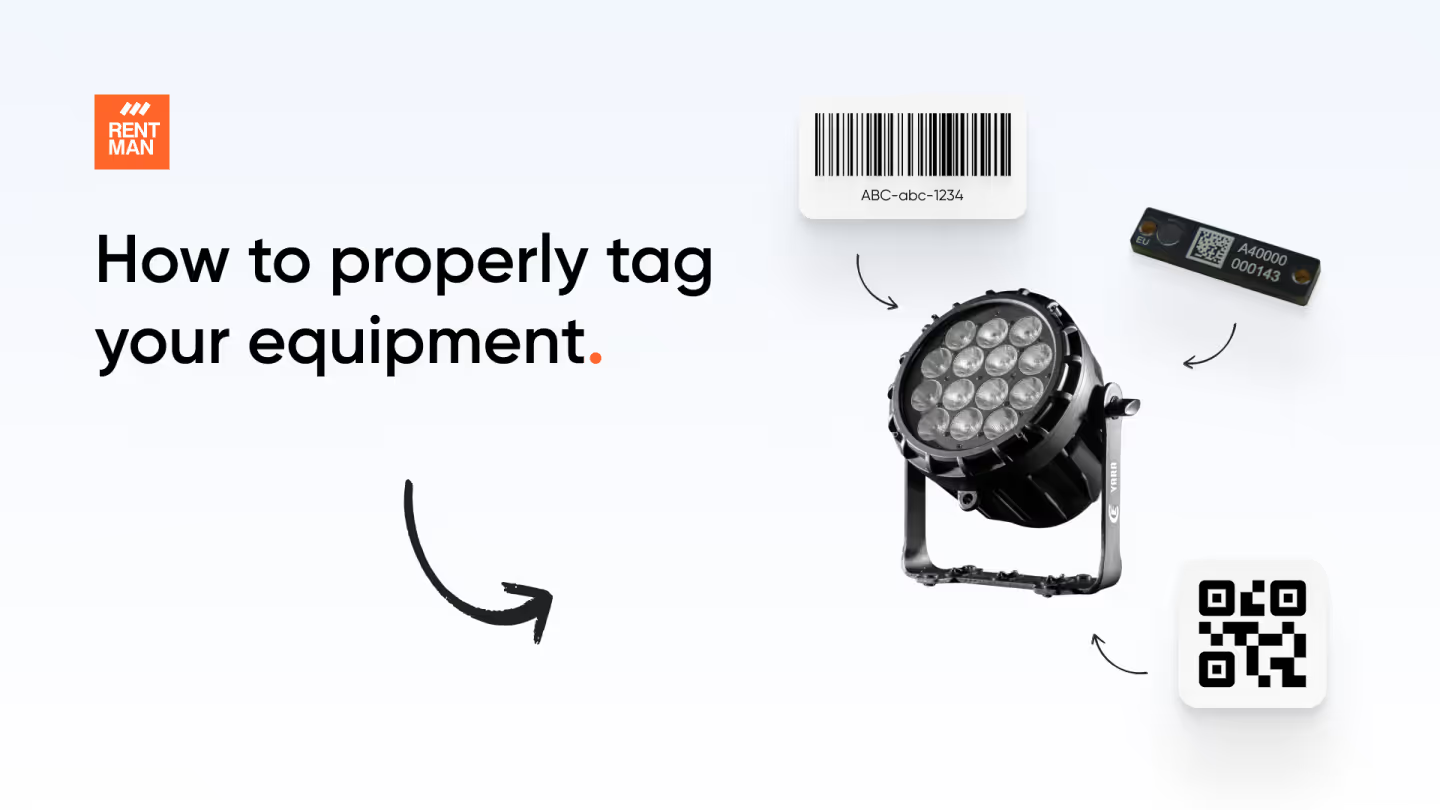Everything you need to know about on-demand staffing for the event industry

As an event or AV company, your staffing needs change dramatically throughout the year. Which makes recruiting quite the challenge. However, executing any event well depends on having qualified staff at your disposal.
On-demand event staffing can be a valuable solution for companies with varying workforce needs, ensuring the right people are always available. For companies operating in professional event staffing, having full visibility into staff availability and deployment is no longer optional, it’s mission-critical.
But what does it entail and how does on-demand staffing compare to traditional recruitment? Here's a complete guide to on-demand staffing for the event industry.
1. What is on-demand staffing?
2. The 7 different types of on-demand staffing
3. How does on-demand staffing work?
4. Traditional recruitment vs. on-demand staffing
What is on-demand staffing?
If you have a sudden shortage due to employee illness, or you need more freelancers for a big event, on-demand staffing will help you meet those needs.
On-demand staffing is one of the most flexible staffing solutions, allowing companies to hire employees who are available to work when needed, often on short notice.
To do this, according to first-hand data, most event companies will rely on their network to quickly source skilled workers. Then about 20% will use Facebook, LinkedIn recruitment, and staffing agencies to quickly find and hire new employees.
On demand staffing offers unmatched flexibility, enabling companies to respond swiftly to seasonal or unexpected demands. It allows event or AV brands to quickly ramp up their workforce in response to sudden demand spikes, events, or seasonal events. All the while ensuring that customer service remains top-notch without long lead times for hiring and training.
Types of on-demand staffing
There are 7 different types of on-demand staffing. The type of contract you select depends on your company's needs and budget. So here's an overview of each type so you can pick and choose accordingly.
On-call employees
On-call employees are people who need to be available to work during designated times. For example, nurses and firefighters often have work shifts and on-call shifts. However, some people only work as on-call employees. So they either have set times they are available to be brought in for work or will always be available to work.
Freelance
Freelancers are one of the most common types of on-demand staffing. And. according to first-hand research, it's also the type of employment where AV companies experience the most scarcity.
A freelance work contract is when companies need to assign tasks or a project and the freelancer will carry it out within the agreed upon timeline.
Freelancers are particularly beneficial in event planning, as they provide specialised skills for projects while allowing companies to pay only for what they need.
Consultant
Consultants provide insight into business processes using their previous experience and an outside perspective. They often offer a wide variety of services, come at a premium price and contracts can last a few months to a few years.
Day laborer
As the name suggests, a day laborer is someone who is hired for one day to work on a specific project. Often hired through agencies or via your network, day laborers are best for assignments that need to be done ASAP.
Leased employees
Leased employees work for a staffing agency that finds them relevant full-time positions. However, while an employee is being leased, it's the staffing agency's job to compensate them and provide the leased employee with benefits, not the organization that leased the employee.
Temporary
Temporary employees are an excellent option for event planners who need additional support during busy periods. Whether that's a few days or a few weeks, temporary workers are a good solution when you know you have an upcoming busy period such as wedding season or multiple festivals lined up.
Contract employees
A contract employee is someone who's hired for a set time period and is expected to show up to a job in person (unlike freelancers or consultants, who can do a lot of work outside the office). A contract employee usually signs a contract with their employer that explains the expectations and the amount of time they're being hired.

How does on-demand staffing work?
On-demand staffing is a straightforward process. Here are the 5 steps to take to find and hire on-demand workers.
- Businesses streamline their hiring process by signing up with an on-demand staffing agency or platform, such as MyWorkChoice or Zelos, to access a pool of temporary workers.
- When your workload increases, request extra help from the on-demand staffing agency or platform.
- The on-demand staffing agency or platform matches your requirements to the best available workers who meet your needs.
- Plan your on-demand workers into your schedule so you have a clear overview as to who's available to help with each task.
- The length of the contract is known upfront, ensuring that event staff can focus on their tasks without uncertainty about their role. Workers are often paid by the hour so ensure that they keep track of the hours they worked.
Traditional recruitment vs. on-demand staffing - which is the best option for you?
Given the amount of choice available, on-demand staffing may feel like an easy solution every time you need to hire a new employee. But not so fast. Traditional recruitment also has its merits.
On-demand staffing is a good option for companies with seasonal or fluctuating needs. So if your company is very busy for only a few months of the year, on-demand staffing will ensure you always have the right number of people with the right skills to help you.
However, full-time staff is needed to grow your business and ensure you can always offer a specific service. Also, having a consistent workforce provides peace of mind and saves you time and energy when it comes to recruiting. Because, if you always need to hire for the same role, it takes more time to continuously find someone versus hiring someone once, full-time.
So which option is best for you? In the fast-paced events industry, this choice depends on the specific needs of your business. A workforce management strategy will help you determine the number of people you need at all times.
Frequently asked questions
Previous blog posts

How a serial number works and why you should use it
How a serial number works and why you should use it


